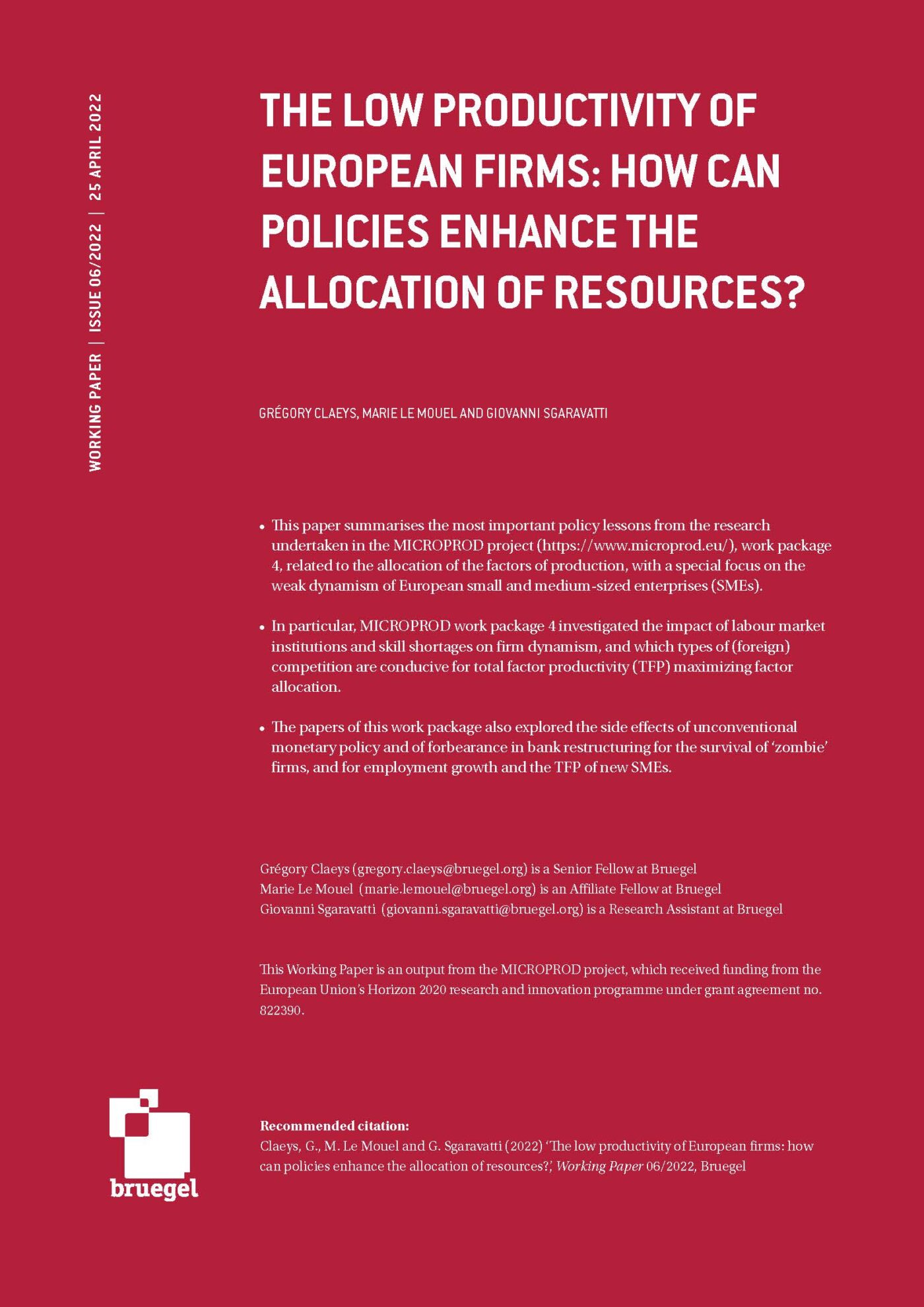Opinion
Will COVID accelerate productivity growth?
The COVID-19 pandemic has prompted an increasing number of rich-country firms to reduce their reliance on global supply chains and invest more in robots at home. But it is probably too soon to tell whether this switch will increase productivity growth in advanced economies.
This opinion piece was originally published in Project Syndicate.
Since the mid-2000s, productivity growth in advanced economies has been anaemic. Average annual productivity growth in the United States from 2005 to 2016 was just 1.3%, less than half of the 2.8% annual growth rate recorded between 1995 and 2004. Across other OECD countries, annual productivity growth declined from 2.3% in the 1995-2004 period to 1.1% between 2005 and 2015.
This sluggish growth appears paradoxical, given recent rapid advances in digital innovation and artificial intelligence. As Erik Brynjolfsson, Daniel Rock, and Chad Syverson have noted, “we see transformative new technologies everywhere but in the productivity statistics.” But might the COVID-19 pandemic help to resolve the paradox by accelerating firms’ adoption of robots and other labour-saving innovations, thereby boosting productivity growth?
Recent research that I co-authored shows that the pandemic has prompted an increasing number of rich-country firms to reduce their reliance on global supply chains and invest more in robots at home. This is because the pandemic has changed the relative costs of these two production models. Global supply chains have become costlier and more uncertain, with many firms anticipating further lockdown-related disruptions to production. At the same time, the decrease in interest rates during the ongoing economic crisis has enabled cheaper financing, thereby lowering the cost of a robot relative to that of a worker.
As a result, firms in developed countries are expected to reshore production – from China, for example – and invest in German or US robots instead. We estimate that the increase in uncertainty owing to the pandemic could reduce global supply-chain activity by 35%. That decrease, coupled with lower interest rates, could boost robot adoption in rich countries by 76% (although here, too, rising uncertainty could deter investment).
Whether the switch from supply chains to robots increases productivity growth in advanced economies will depend on whether robots create larger productivity gains than offshore workers do. Fortunately, we have empirical evidence that could point toward an answer.
Offshoring production to China or Eastern Europe increased developed-country firms’ productivity, because wages in these regions were much lower than at home. For example, German companies’ use of Eastern European rather than German workers in parts of their supply chains resulted in economy-wide productivity gains that contributed to Germany’s “super-competitiveness.”
Estimating the productivity gains from introducing robots is far trickier, because the outcome depends on whether firms use the robots simply to replace workers, or instead reorganise production in order to exploit the potential that AI offers. Doing the latter can create entirely new jobs that foster rapid productivity growth.
But recent research by Daron Acemoglu and Pascual Restrepo suggests that US firms nowadays use robots primarily to automate tasks previously performed by workers rather than to create new jobs. They found that between 1947 and 1987, labour displacement as a result of automation was offset by reinstatement of labour into new jobs created by other new technologies. In the last three decades, however, worker displacement has far outpaced reinstatement. As a result, the labour share in US GDP (the share of income that goes to workers) has been declining since the mid-1980s. Firms’ focus on automation may explain why productivity growth has been so anaemic in recent years, despite the AI revolution.
Moreover, studies of technological innovation suggest that there is a long implementation lag until a new technology’s potential is fully revealed. Applying new technologies takes considerable time, and the more profound and far-reaching the potential restructuring, the longer the time lag between the initial invention and the complete economic impact. The full benefit of the technology often requires time-consuming complementary investments, such as organisational changes.
These findings suggest that the pandemic will not start to accelerate productivity growth anytime soon. That in turn has important implications for the future of world trade. In the period of hyper-globalisation from 1990 to 2008, global supply chains accounted for 60-70% of the growth in world trade, as rich-country firms relocated production to Eastern Europe and China in order to benefit from lower labour costs. They then imported the inputs manufactured in these regions to their home market, boosting growth in trade in intermediate goods.
Supply-chain disruption and reshoring will likely slow world trade unless productivity growth accelerates in advanced economies. If the adoption of robots increases rich-country firms’ productivity, they will become more competitive and produce more. They will thus import more intermediate inputs from developing countries.
The World Bank’s Erhan Artuc, Paulo Bastos, and Bob Rijkers argued along these lines in a 2018 paper that presented a more optimistic outlook for world trade. But another recent study shows that robot adoption in the US has led firms to withdraw supply chains from Mexico, eliminating some jobs that previously had been offshored there.
The COVID-19 pandemic has had a large, abrupt, and measurable impact on the global economy and firms’ business models. But its effects on productivity growth, possibly highly significant, will take longer to judge.
Republishing and referencing
Bruegel considers itself a public good and takes no institutional standpoint.
Due to copyright agreements we ask that you kindly email request to republish opinions that have appeared in print to [email protected].









